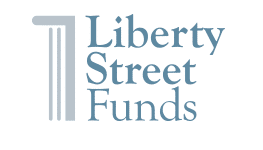Paul van Lingen and Ara Balabanian, portfolio managers of the Bramshill Multi-Strategy Income Fund, provide insight on rising subprime auto defaults in a MarketWatch article.
The two are quoted from a recent client note discussing potential for defaults and recoveries to reach levels “not seen since the GFC.” They remark, increased levels of distress may trigger forced selling “at very attractive valuations.”
You can read the full MarketWatch article here.
The above link will take you to a third-party site.
Before investing you should carefully consider the Bramshill Multi-Strategy Income Fund’s investment objectives, risks, charges, and expenses. This and other information about the Fund is in the prospectus and summary prospectus, a copy of which may be obtained by calling 800-207-7108 or by visiting the Fund’s website at www.libertystreetfunds.com. Please read the Fund’s prospectus or summary prospectus carefully before investing.
Fund holdings and sector allocations are subject to change and should not be considered a recommendation to buy or sell any security.
Bond ratings are grades given to bonds that indicate their credit quality as determined by private independent rating services such as Standard & Poor’s, Moody’s and Fitch. These firms evaluate a bond issuer’s financial strength, or its ability to pay a bond’s principal and interest in a timely fashion. Ratings are expressed as letters ranging from `AAA’, which is the highest grade, to `D’, which is the lowest grade.
Coupon: the annual interest rate paid on a bond, often expressed as a percentage of the bond’s face value and paid from issue date until maturity
RISKS AND OTHER DISCLOSURES:
Effective December 1st, 2022, Bramshill Investments, LLC is the Fund’s Sub-advisor responsible for managing the Fund’s portfolio, replacing the Fund’s prior sub-advisor, and the Fund’s name changed to Bramshill Multi-Strategy Income Fund. Effective April 30, 2023, changes were made to the Fund’s principal investment strategy. While the Fund will still invest in securitized products such as residential mortgage-backed securities (“RMBS”) and asset-backed securities, it may not focus its investments in RMBS, and the strategy may include investments in other fixed income opportunities. No changes were made to the Fund’s investment objective.
An investment in the Bramshill Multi-Strategy Income Fund is subject to risk, including the possible loss of principal amount invested and including, but not limited to, the following risks: Market Risk: the market price of a security may decline, sometimes rapidly or unpredictably, due to general market conditions that are not specifically related to a particular issuer, company, or asset class. Fixed income/interest rate: Generally, fixed income securities decrease in value if interest rates rise, and increase in value if interest rates fall. High Yield (“Junk”) bond: involve greater risk of default, downgrade, or price declines, can be more volatile and less liquid than investment-grade securities. Securitized Products: such as mortgage-backed and asset-backed securities, are subject to prepayment risk, “extension risk” (repaid more slowly), credit risk, liquidity and default risks. Liquidity: the Fund may not be able to sell some or all of the investments that it holds due to a lack of demand in the marketplace or it may only be able to sell those investments at a loss. Liquid investments may become illiquid or less liquid after purchase by the Fund, Illiquid investments may be harder to value, especially in changing markets. Valuation: From time to time, the Fund will need to fair-value portfolio securities at prices that differ from third party pricing inputs. This may affect purchase price or redemption proceeds for investors who purchase or redeem Fund shares on days when the Fund is pricing or holding fair-valued securities. Such pricing differences can be significant and can occur quickly during times of market volatility. Credit Risk: If an issuer or guarantor of a debt security held by the Fund or a counterparty to a financial contract with the Fund defaults or is downgraded or is perceived to be less creditworthy, the value of the Fund’s portfolio will typically decline. The Fund’s securities are generally not guaranteed by any governmental agency. Real estate market: property values may fall due to various economic factors. Management and Strategy: the evaluation and selection of the Fund’s investments depend on the judgment of the Fund’s Sub-Advisor, which may prove to be incorrect. Government Securities: securities issued or guaranteed by the U.S. government or its agencies (such as securities issued by Ginnie Mae, Fannie Mae, or Freddie Mac) are subject to market risk, interest rate risk and credit risk. Sector: emphasis of the Fund’s portfolio on a specific sector may present more risks than if the portfolio were broadly diversified over numerous sectors. Collateralized Loan Obligations: subject to interest rate, credit, asset manager, legal, regulatory, limited recourse, liquidity, redemption, and reinvestment risks. Recent Market Events: Periods of market volatility may occur in response to market events and other economic, political, and global macro factors, such as the Covid-19 pandemic, government actions to mitigate its effects, and the rise of inflation, could adversely affect the value and liquidity of the Fund’s investments. Non-diversification: focus in the securities of fewer issuers, which exposes the Fund to greater market risk than if its assets were diversified among a greater number of issuers. Repurchase agreement: may be subject to market and credit risk. Reverse repurchase agreement: risks of leverage and counterparty risk. Leverage: The use of leverage may magnify the Fund’s gains and losses and make the Fund more volatile. Derivatives: derivative instruments (e.g. short sells, options, futures) involve risks different from direct investment in the underlying assets, including possible losses in excess of amount invested or any gain in portfolio positions. Municipal Bonds: payment of principal and interest on these obligations may be adversely affected by a variety of factors at the state or local level. Leveraged Loan: subject to the risks typically associated with debt securities, and may be more credit sensitive. Equity: The value of equity securities may fall due to general market and economic conditions, perceptions regarding the real estate industry, or factors relating to specific companies. Preferred Stock: subject to company-specific and market risks applicable generally to equity securities and is also sensitive to changes in the company’s creditworthiness, and changes in interest rates. ETF: Investing in an ETF will provide the Fund with exposure to the securities comprising the index on which the ETF is based and will expose the Fund to risks similar to those of investing directly in those securities. LIBOR: Many financial instruments use a floating rate based on the London Interbank Offered Rate (“LIBOR”), which is being phased out. Any effects of the transition away from LIBOR could result in losses.
The Fund may not be suitable for all investors. We encourage you to consult with appropriate financial professionals before considering an investment in the Fund.
Liberty Street Advisors, Inc. is the advisor to the Fund. The Fund is part of the Liberty Street family of funds within the series of Investment Managers Series Trust.
The Fund is distributed by Foreside Fund Services, LLC.

